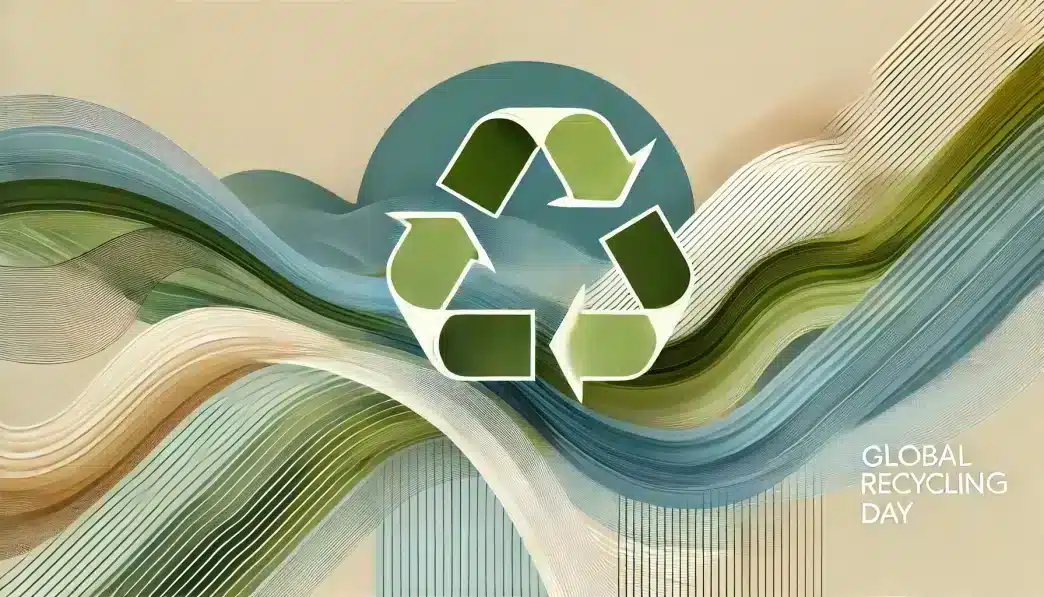What is Global Recycling Day?
Global Recycling Day is an annual event observed on March 18 to highlight the importance of recycling and sustainability. This day encourages individuals, communities, and organizations to actively contribute to reducing waste and promoting a circular economy. Recycling plays a key role in conserving resources, reducing pollution, and combating climate change, making it an essential practice for environmental sustainability.
History and Origin
Global Recycling Day was established in 2018 by the Global Recycling Foundation to raise awareness about the significance of recycling in protecting our planet. This day serves as a reminder of the importance of recycling in preserving natural resources, conserving energy, and reducing waste. Since its inception, Global Recycling Day has gained global recognition as an opportunity to unite people and organizations worldwide to take action and push for a greener, more sustainable future.
The event is centered around the idea of promoting recycling practices to protect the environment and secure a healthier future for future generations. It encourages the adoption of recycling systems in communities, businesses, and governments, as well as the reduction of the environmental impact of production and waste.
Who Observes Global Recycling Day?
- Individuals: People from all over the world take part by improving their recycling habits and encouraging others to do the same.
- Communities: Local communities organize events and initiatives to promote recycling and raise awareness about its importance.
- Organizations: Businesses, both large and small, implement recycling programs and support environmental education initiatives.
- Governments: National and local governments promote recycling efforts through laws, regulations, and public awareness campaigns.
- Educational Institutions: Schools, colleges, and universities take part by educating students on the importance of recycling and providing recycling stations on campuses.
Themes and Slogans
Global Recycling Day often adopts a yearly theme to highlight different aspects of recycling. These themes help direct attention to specific environmental challenges, such as reducing plastic waste, promoting a circular economy, and encouraging global collaboration to reduce environmental impacts. Past themes have encouraged recycling heroes to stand up for the planet, emphasizing the importance of community involvement and local efforts to improve sustainability.
Slogans used during the day include messages like “Recycle, Reuse, and Reduce,” and “A Greener Tomorrow Starts Today,” which inspire individuals and organizations to act for the environment. The overarching message is clear: recycling is not just an individual task but a global responsibility that contributes to a sustainable and eco-friendly world.
Colors, Symbols, and Patterns
Colors
- Green: Symbolizes sustainability, environmental protection, and the efforts to conserve natural resources.
- Blue: Represents the Earth and highlights the importance of protecting our planet for future generations.
- White: Reflects the purity and circular nature of recycling, representing how materials can be reused indefinitely.
Symbols
- Recycling Arrows: The universal symbol for recycling, showing the continuous loop of material reuse and the cycle of nature.
- Earth: Represents our planet and the necessity to protect it from pollution and environmental degradation.
- Hands: Symbolize human involvement and responsibility in preserving the environment for future generations.
Patterns
- Circular: Refers to the circular economy and how recycling ensures that resources are reused in a continuous cycle.
- Leaves: Symbolizing nature and sustainability, leaves are often used in logos and designs for recycling-related initiatives.
- Arrows: The interlocking arrows often represent the continuous process of recycling, turning waste into valuable resources.
How to Observe Global Recycling Day
- Participate in Events: Attend or organize local events such as recycling drives, clean-up efforts, or workshops that focus on educating the community about the importance of recycling.
- Educate Yourself and Others: Learn more about the different types of materials that can be recycled, how to properly dispose of waste, and how recycling benefits the environment. Share this knowledge with friends, family, and colleagues to inspire them to act.
- Start or Support Recycling Programs: Help implement recycling systems in your workplace, school, or community. If one does not exist, advocate for its introduction to reduce waste and promote a more sustainable environment.
- Advocate for Policy Change: Join or support efforts to push for stronger government policies that promote recycling, reduce waste, and provide better recycling infrastructure to the public.
- Raise Awareness on Social Media: Use platforms like Facebook, Instagram, and Twitter to spread the message of recycling, post about your personal efforts, and encourage others to adopt recycling practices. Use hashtags like #GlobalRecyclingDay and #RecyclingHeroes to get involved in the global conversation.
Most Used Hashtags
- #GlobalRecyclingDay
- #RecyclingHeroes
- #CircularEconomy
- #Sustainability
- #GreenFuture
Why is Global Recycling Day Important?
Global Recycling Day is crucial because it encourages worldwide participation in recycling efforts. The day highlights how recycling reduces waste, conserves energy, and helps tackle environmental issues such as pollution and climate change. By making recycling a global priority, we ensure that future generations inherit a cleaner, healthier planet. Recycling also creates economic opportunities by turning waste materials into valuable resources, providing both environmental and financial benefits.
Features
Contact Info
March 18: Recycling Day
Why do you keep falling for the same type?
Read the article Lovemaps: the hidden blueprint of our love.

